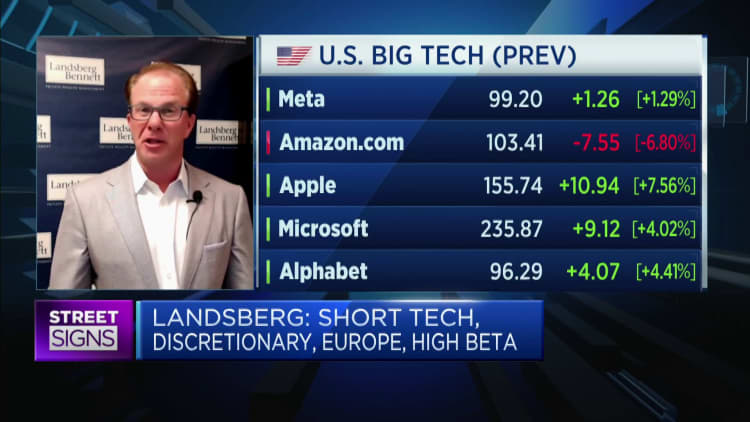Stocks in Hong Kong led gains in the Asia-Pacific session after concluding the month of October with a more than 14% loss, hovering around the lowest levels that it's seen since April 2009.
The Hang Seng index in Hong Kong rose 5.23% to 15,455.27, with Hang Seng Tech up 7.8% after unconfirmed reports of reopening talks taking place in China. Mainland China's Shanghai Composite gained 2.62% to 2,969.20 and the Shenzhen Component added around 3.24% to 10,734.25 after the Caixin manufacturing PMI for the country came in at 49.2, slightly better than expected.
The Reserve Bank of Australia raised interest rates by 25 basis points for the second consecutive time, in line with expectations. The S&P/ASX 200 rose 1.65% to 6,976.90.
The Nikkei 225 in Japan was 0.33% higher at 27,678.92 while the Topix rose 0.47% to 1,938.50.The Kospi in South Korea also rose 1.81% to 2,335.22. MCSI's broadest index of Asia-Pacific shares outside Japan was 2.74% higher.
Overnight in the U.S., stocks dipped, but the Dow posted its best month since 1976 and all the major averages ended the month in positive territory after two months of losses.
The Federal Reserve's meeting begins on Tuesday stateside, where traders are widely expecting a hike interest rates by 75 basis points this week.
Correction: This headline was updated to remove an incorrect characterization of the move in the Hong Kong stock market.


